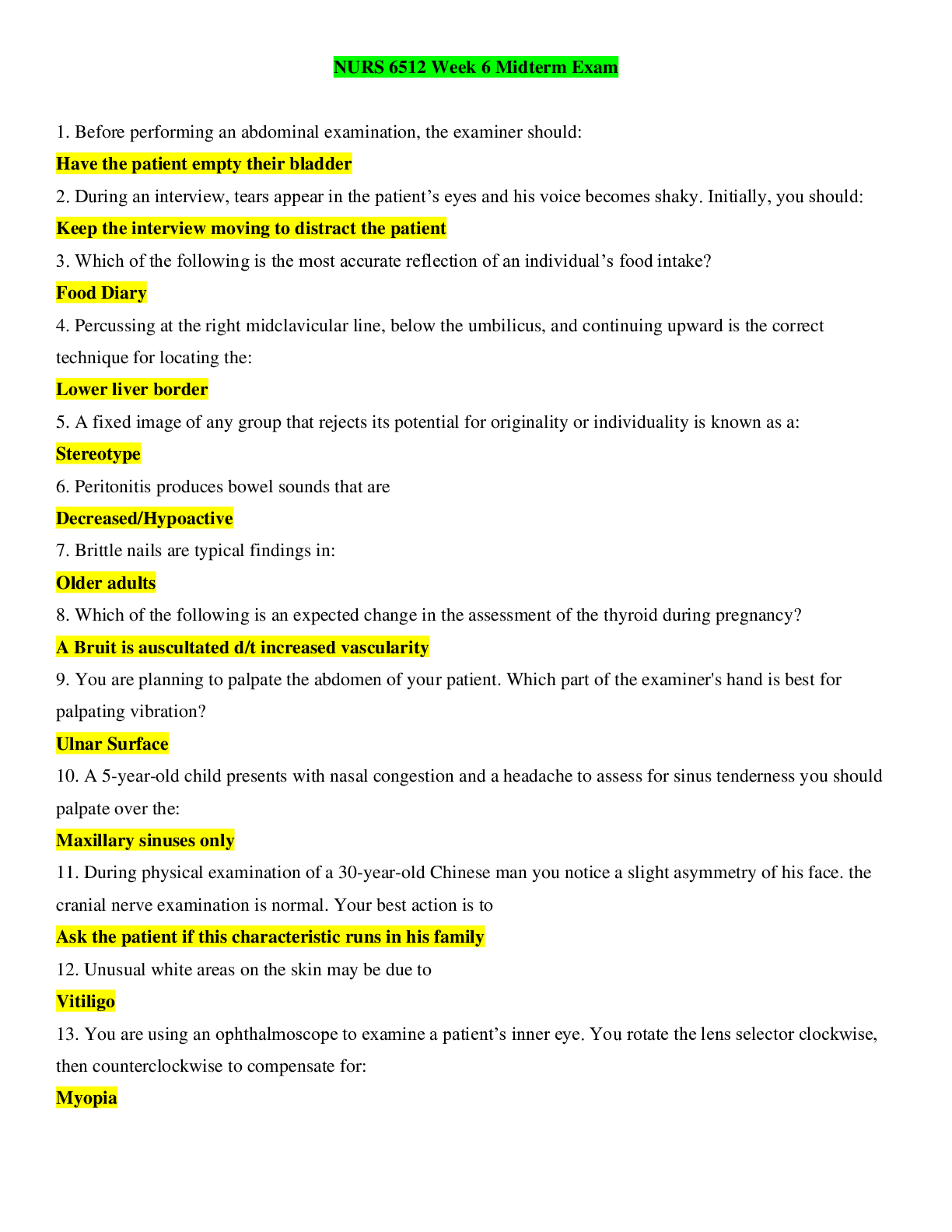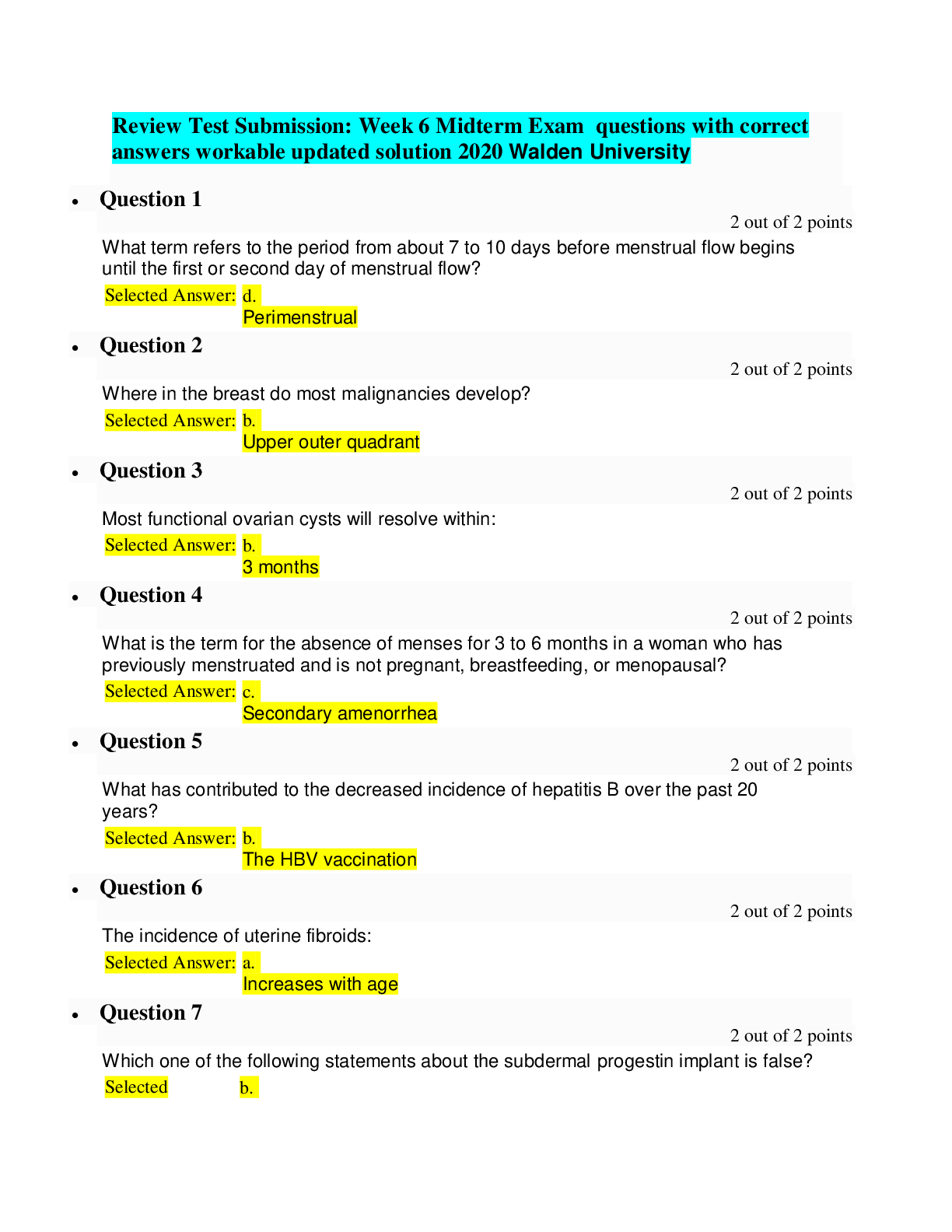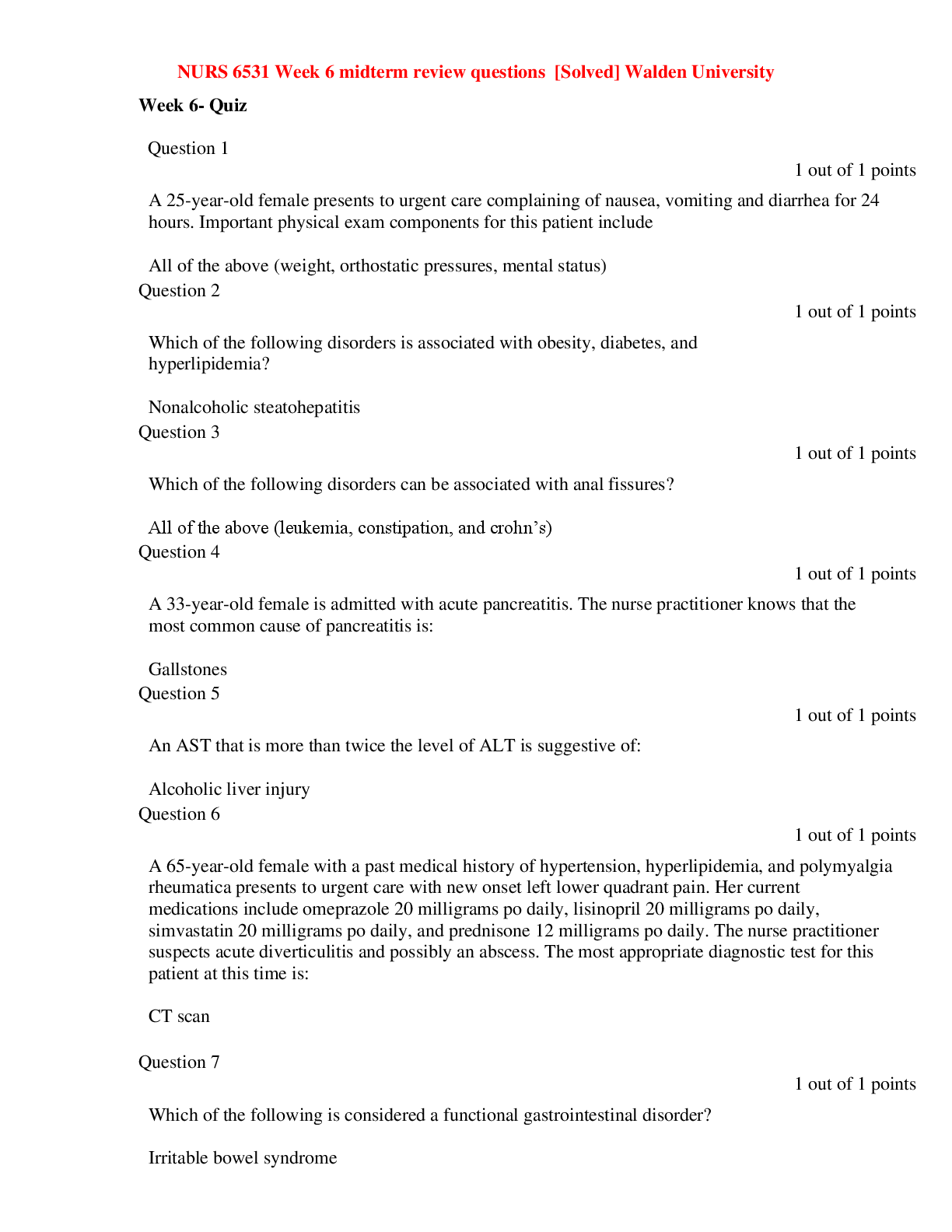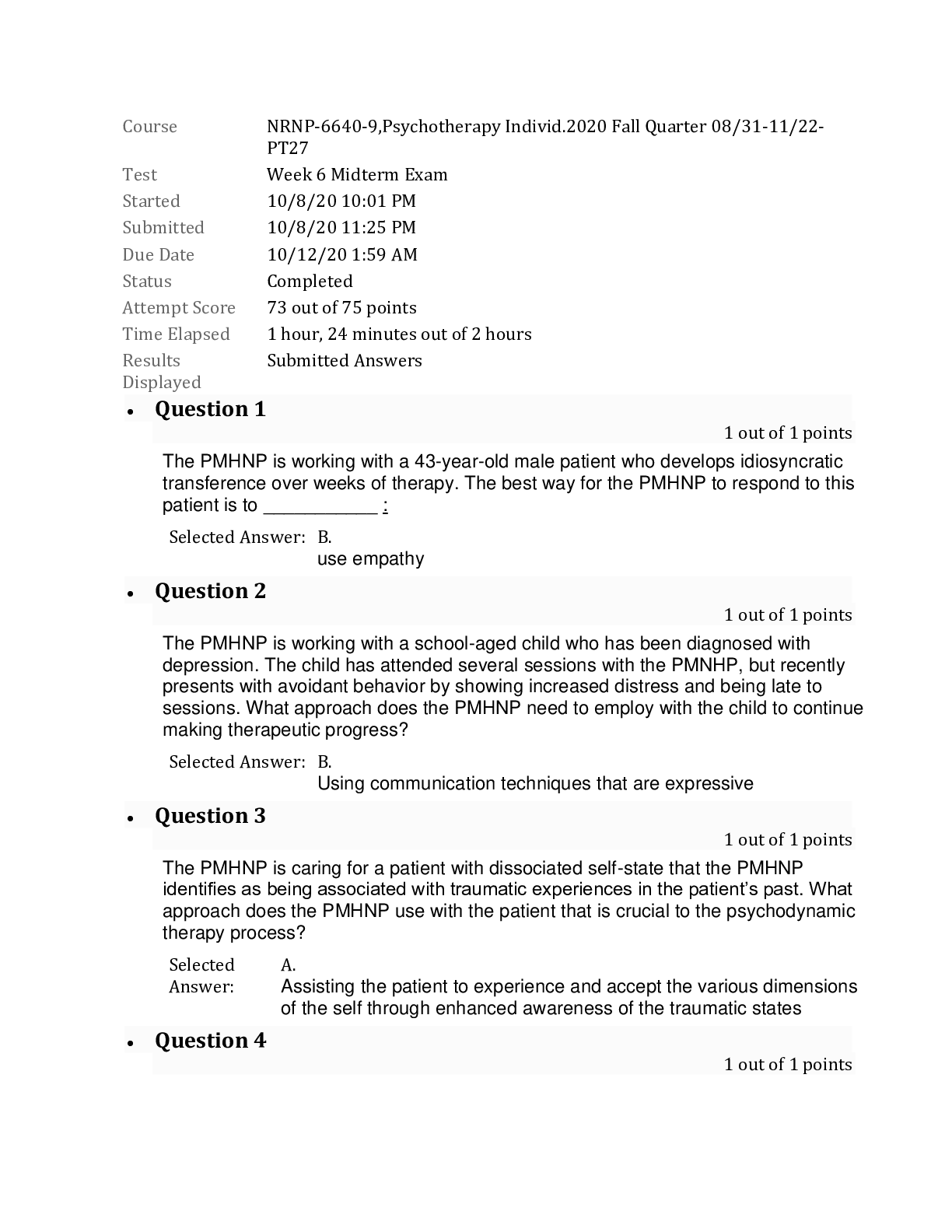Health Care > QUESTIONS & ANSWERS > NURS 6640 Week 6 Midterm exam (All)
NURS 6640 Week 6 Midterm exam
Document Content and Description Below
Question 1 0 out of 1 points A PMHNP is treating a 45-year-old female patient who is upset that her brother has not been calling since his divorce. When asked to describe her brother and what prom... pts him not to call as frequently, she says, “Everything is about him, not me. I think he’s jealous that I have a good marriage and he wants me to be unhappy, too. So he doesn’t call to upset me and ruin my relationships.” Based on this information, the PMHNP can conclude that the patient _________. Selected Answer: B. has an insistent emphasis on the feelings of others Question 2 1 out of 1 points When a PMHNP is seeing a patient for the first time, what is an important step to assure that the patient and provider understand the limits of their discussion? Selected Answer: C. Have a discussion about the confidentiality and its limits Question 3 1 out of 1 points You are seeing a 29-year-old widow whose husband recently died overseas while serving his country in the military. She has been mourning the loss of her husband for several months, and continues to grieve. She refuses to go to group grieving sessions, but reports that she is still able to go to work and her fitness classes sometimes, and even makes attempts to stay social. She says, “Sometimes it’s like he’s not even gone. Other times it feels like it’s been an eternity since I’ve seen him. It’s hard to talk about this type of stuff with my girlfriends, especially since all of their husbands are still alive.” The PMHNP understands that it is appropriate to employ which therapeutic principle? Selected Answer: A. Encouraging catharsis Question 4 1 out of 1 points The PMHNP is treating a 35-year-old male officer in the military. He discloses that both of his parents are deceased and that he loved them. However, he says that he had feelings of inadequacy because his parents held him to a standard that he could never achieve. He went on to say that nothing he did ever felt good enough. The PMHNP assesses that this patient has perfect creases in his uniform with no strings or tags out of place; she also notices that he has perfect posture and questions him about ritualistic behaviors. She suspects that this patient has maladaptive responses to the expectations placed on him as a teenager and young adult. Which statements made by the patient would verify the PMHNP’s suspicion? Selected Answer: D. “I believe in systems; I have to have order and rules in my everyday life. If a task must be completed, I will often complete it myself versus depending on someone else.” Question 5 0 out of 1 points The PMHNP is working with a patient who experiences anxiety around her parents that later leads to poor impulse control. What will the PMHNP do to employ psychodynamic psychotherapy properly for this patient? Selected Answer: B. Focus on expressions of emotion Question 6 1 out of 1 points The PMHNP has been treating a 15-year-old patient with a history of abuse and neglect. Thirty minutes into their therapy session the patient jumps up and begins to pace around the room. Utilizing Socratic dialogue (SD) the PMHNP’s best action would be to: Selected Answer: C. Say, “I noticed a change. Can you tell me what happened?” Question 7 1 out of 1 points During cognitive behavioral therapy (CBT), a 64-year-old male patient states, “I get so frustrated sometimes and I just blow up at everybody!” Which response by the PMHNP demonstrates translation of Socratic dialogue (SD)? Selected Answer: B. “When you say blow up, what exactly does blow up mean and how does it feel to you?” Question 8 1 out of 1 points The PMHNP understands that anxiety and depression are two disorders in which their symptoms may overlap. When discussing this, you explain that the autonomic nervous system is activated and further helps distinguish anxiety symptoms by making the following points: Selected Answer: B. “You may experience fear, sweating, and muscle tension.” Question 9 1 out of 1 points The PMHNP meets with an adolescent patient who has depression and often presents with resistance when discussing his parent’s divorce. For the past couple of sessions, the patient has been quiet, sometimes refusing to speak. To further support the therapeutic relationship, the PMNHP: Selected Answer: A. Observes and points out the behavior Question 10 1 out of 1 points The PMHNP is working with a patient who experiences abreactions when discussing repressed feelings of his sexual abuse as a child. What can the PMHNP do to manage the patient’s intense emotional reactions? Selected Answer: C. Suggest a relaxation technique, such as yoga or meditation Question 11 0 out of 1 points A 35-year-old patient seeks treatment for depression and anxiety after an abusive relationship. To help empower the patient, the PMHNP wants to teach the safe-place exercise to create a feeling of calm. In order to walk the patient through the exercise, the PMHNP first says: Selected Answer: D. “Picture a beautiful beach and describe to me what you see.” [Show More]
Last updated: 2 years ago
Preview 1 out of 17 pages

Buy this document to get the full access instantly
Instant Download Access after purchase
Buy NowInstant download
We Accept:

Reviews( 0 )
$7.50
Can't find what you want? Try our AI powered Search
Document information
Connected school, study & course
About the document
Uploaded On
Jan 24, 2023
Number of pages
17
Written in
Additional information
This document has been written for:
Uploaded
Jan 24, 2023
Downloads
0
Views
56


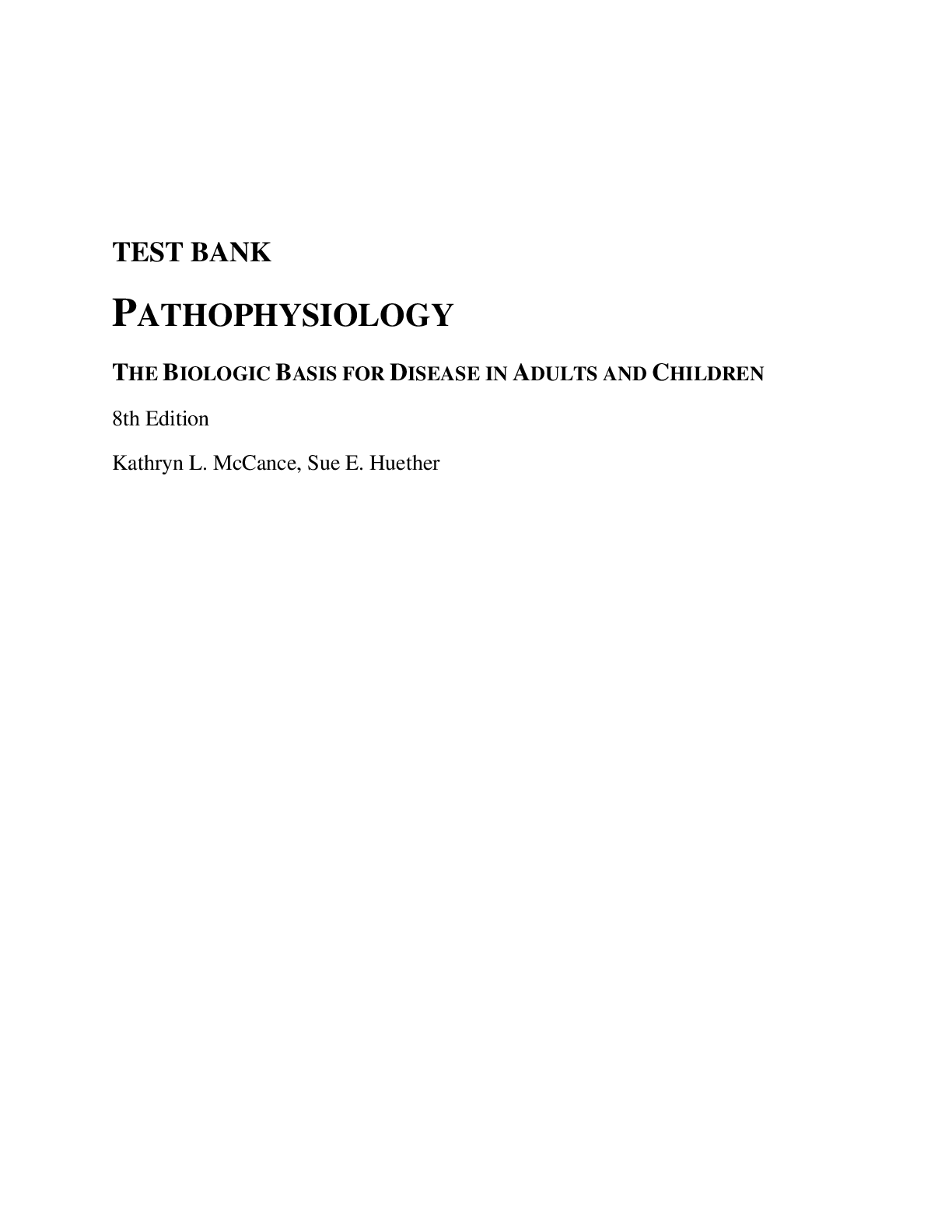

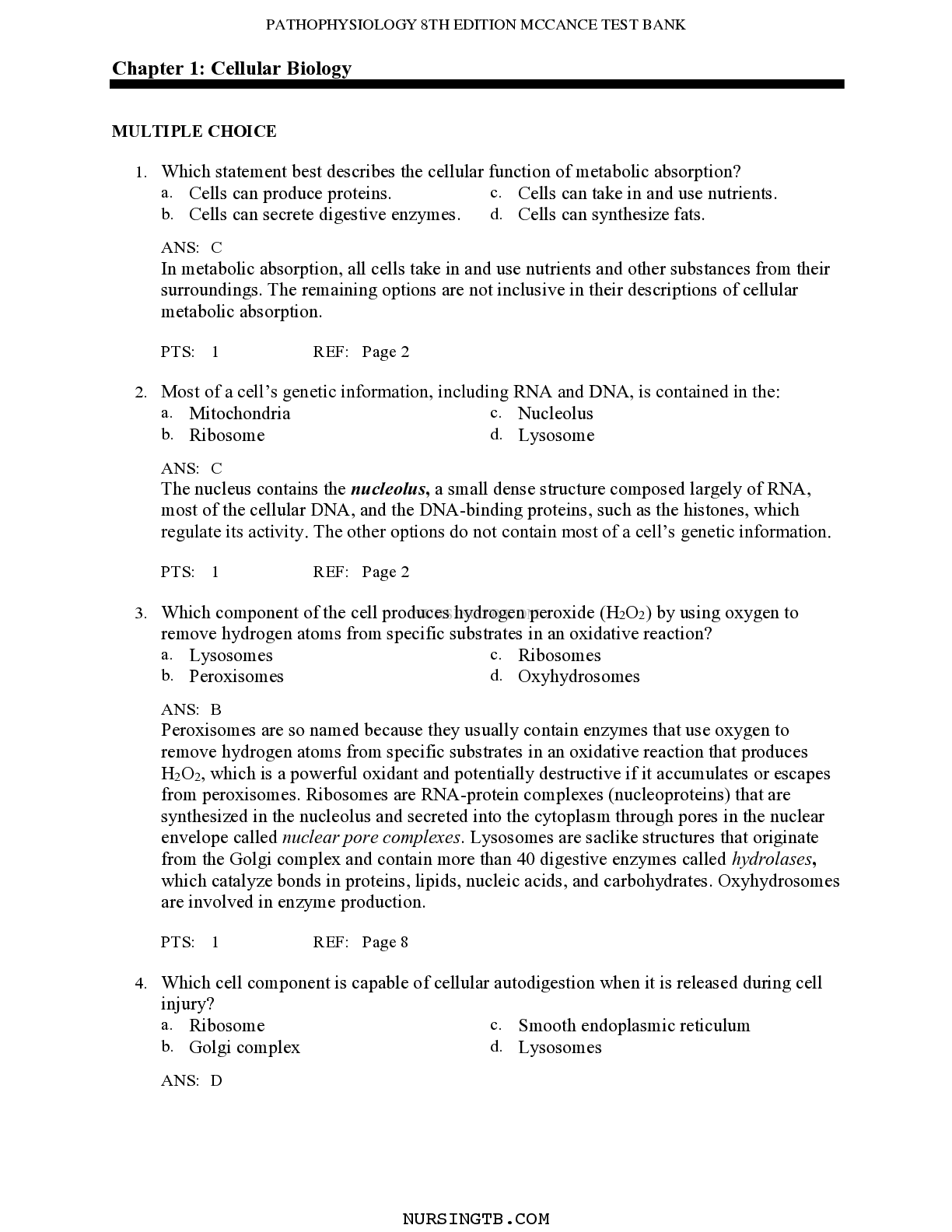
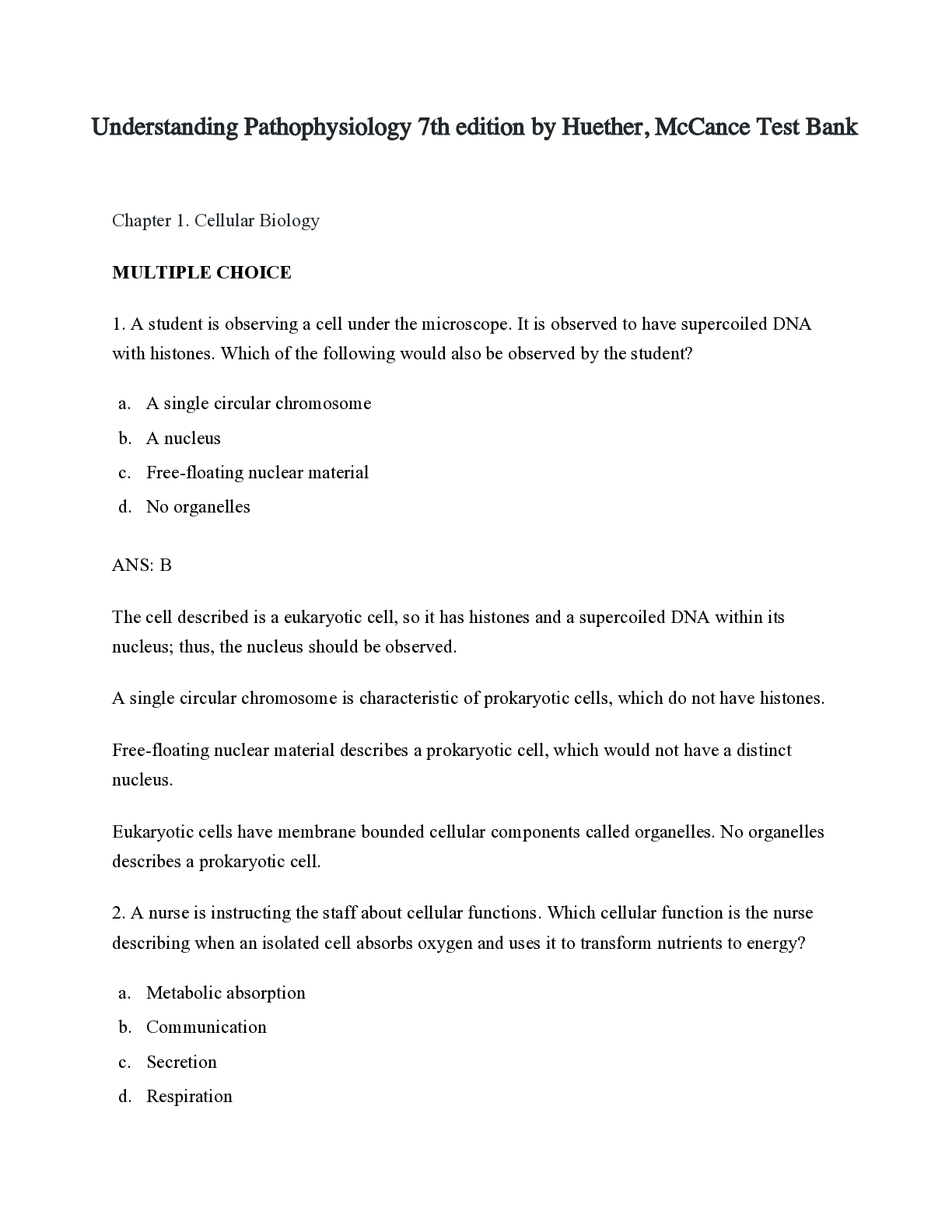
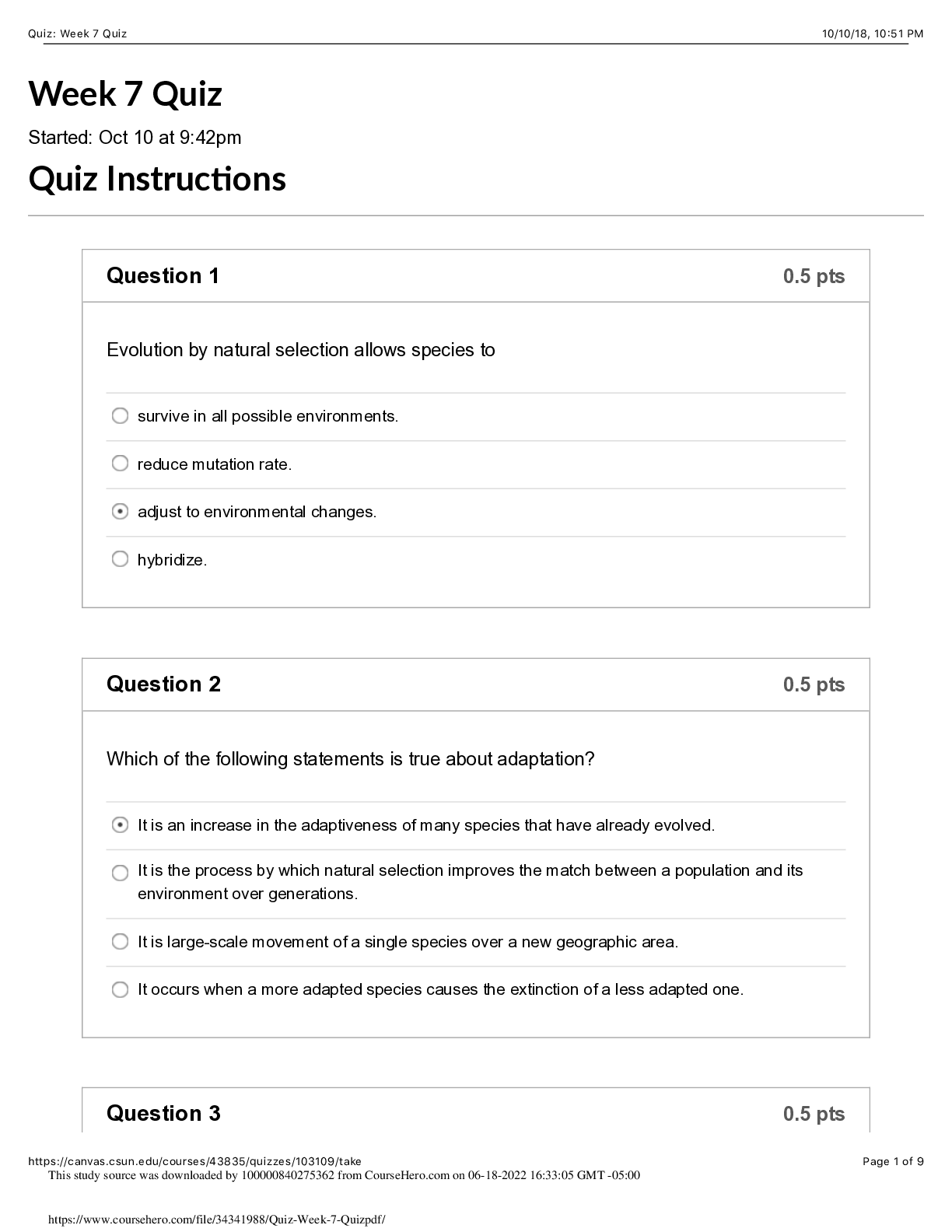
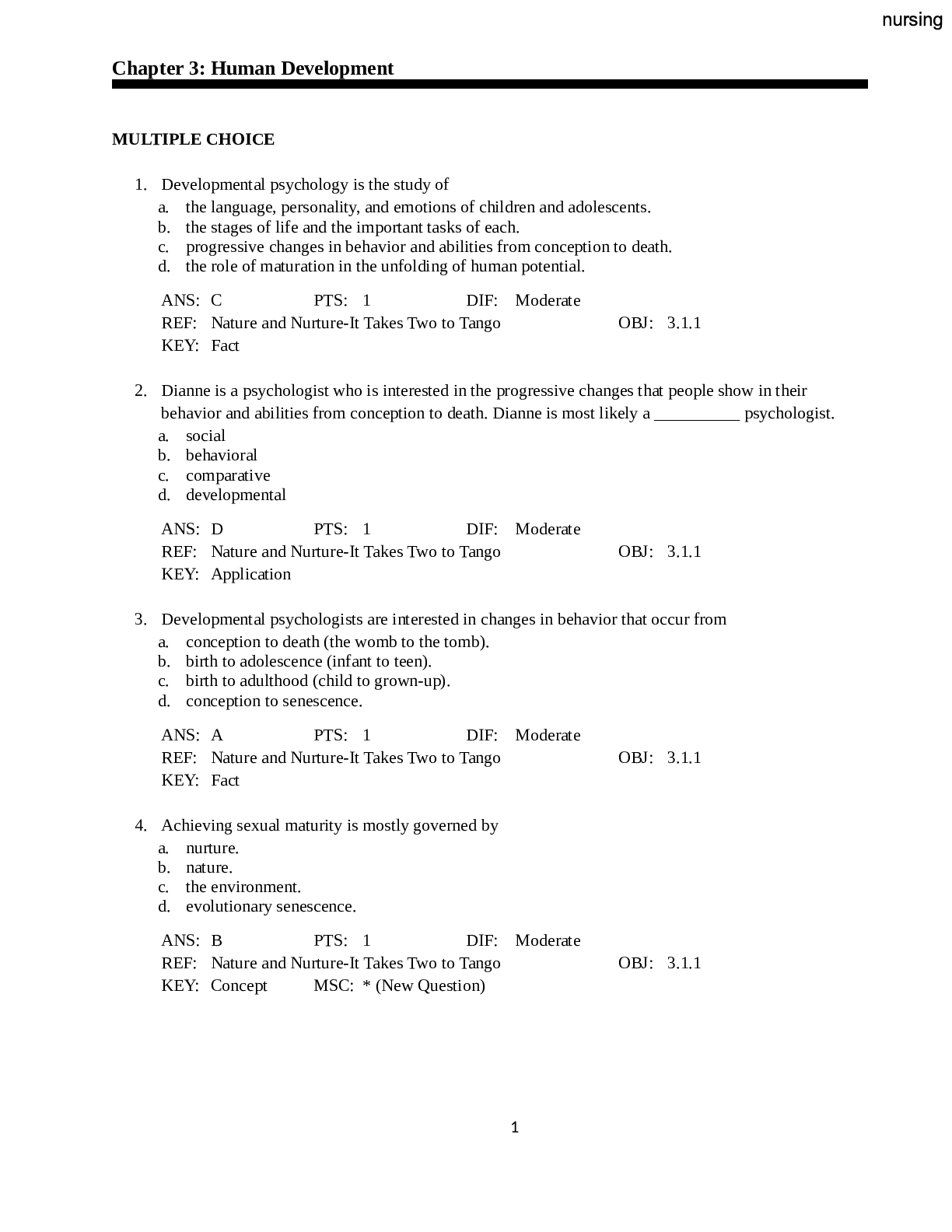

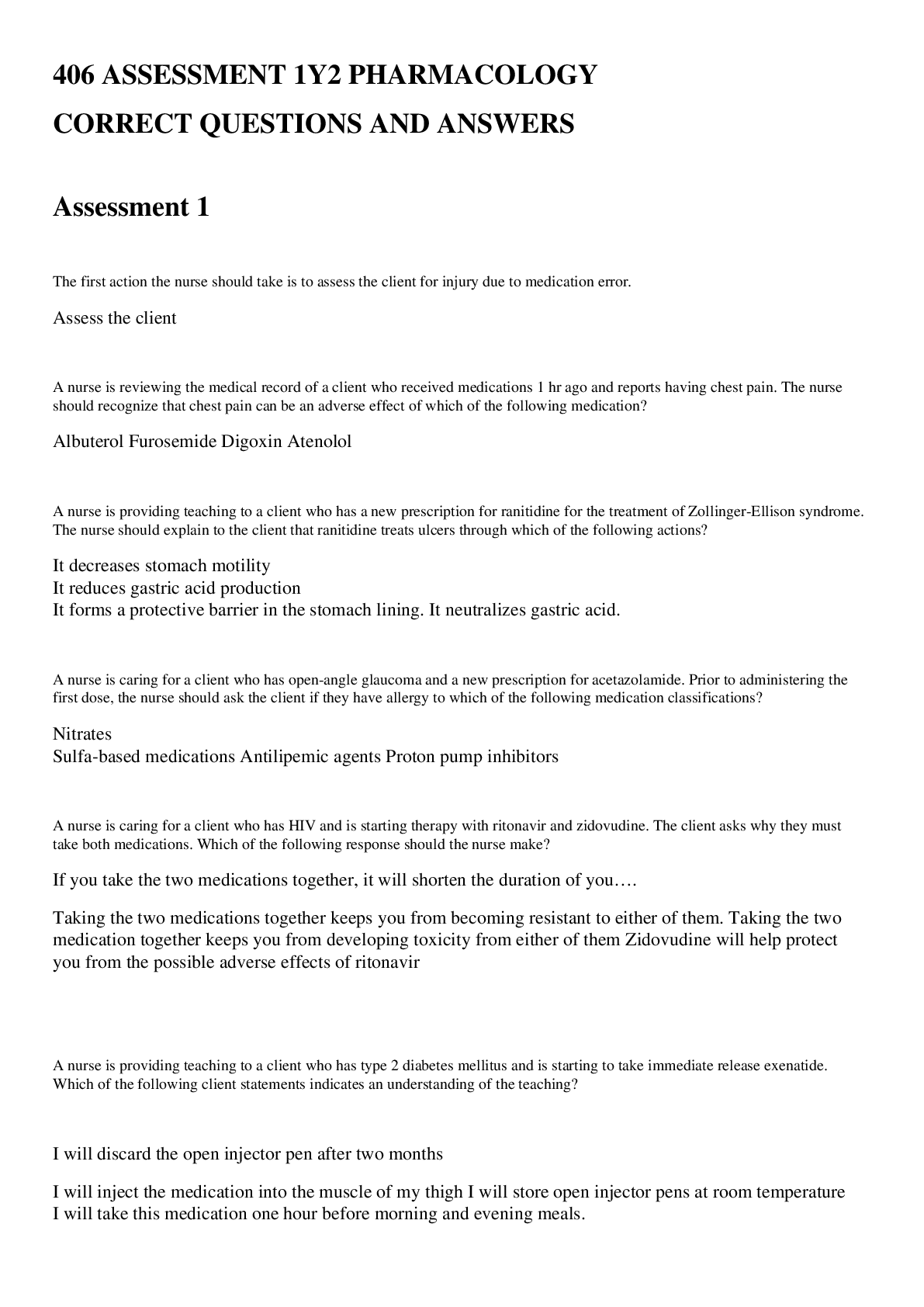
.png)




